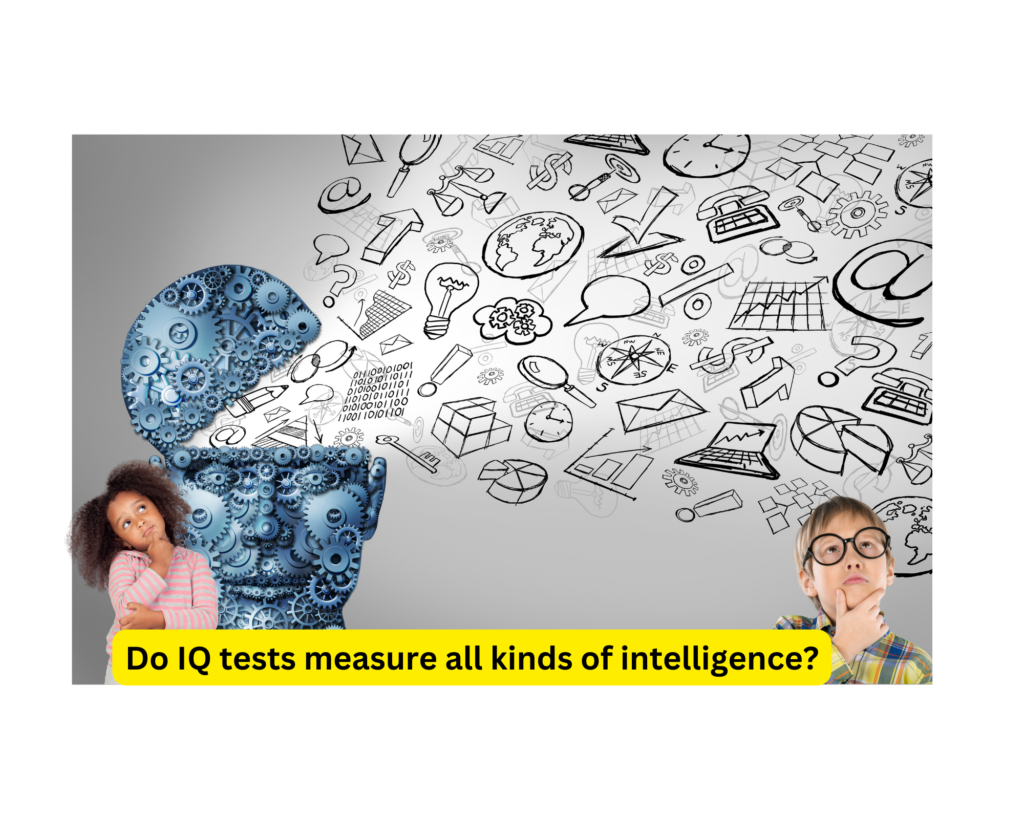Do IQ tests measure all kinds of intelligence?
IQ tests are a useful tool for measuring cognitive and academic aptitude but do IQ tests measure all kinds of intelligence? In this article, I will show you that regardless of your IQ score, you are smarter than you think you are.
IQ test stands for Intelligence Quotient. It is a scored test of logic, reasoning, and problem-solving abilities (according to age) and has been around since about 1912. There are also multiple versions of IQ tests. IQ tests have long been used to identify children for supplemental educational services, gifted and talented programs as well as career counselors. While IQ tests are reliable tools for testing cognitive and academic aptitude, are they the best indicators of intelligence? Many educators do not think so.
Howard Gardener, a psychologist, founder of Harvard Project Zero, and author of Frames of Mind (Gardener 1983) theorized that traditional IQ testing scores were a limited measure of intelligence. Gardener opined that asking people to solve artificial problems in artificial settings is not the best way to gauge intelligence. For these and other reasons, Gardener believed that IQ tests are limited in identifying the full range of human intelligence.
In 1983, Gardner theorized that intelligence is really a combination of 7 abilities or intelligences. Gardener asserts that these intelligences are found in each person in varying degrees. In addition, Gardener indicates that the intelligences work together in a different way for each person. In 1999, Howard Gardener added an 8th intelligence to the list.
Linguistic intelligence:
The ability to use words and language to convey ideas, concepts, explanations, stories, motivational speaking, teaching, and other purposes. Linguistically intelligent people demonstrate proficiency in the use of oral and written words. Likely professions are teachers, politicians, writers, or journalists.
Logical-mathematical intelligence:
The ability to use patterns, logic, relationships, and numerical aptitude to reason and solve problems. People with logical-mathematical intelligence make sense of things by using logical patterns, classifying information, and calculating options and results. Likely professional occupations are scientist, computer programmer, accountant, statistician, and auditor.
Spatial intelligence:
The ability to read and understand charts and maps, and the interconnectivity between entities like shapes, colors, textures, and forms. People with spatial intelligence do well with visual representations such as architectural plans, designs, puzzles, and mapping. Likely professional occupations are artists, architects, designers, and cartographers.
Bodily-Kinesthetic Intelligence:
Skill in expression using body movements and using hands to create things. This also includes superior motor skills and physical agility. People with heightened bodily-kinesthetic intelligence are good at sports, dancing, and creating things like 3D art and sculpture. These heightened manual dexterity skills are also skills often seen in surgeons.
Musical Intelligence:
People with musical intelligence have an aptitude for and are sensitive to tones, sounds, melodies, and rhythms. They notice when music is off-key and can recall melodies and songs easily. Likely occupations are musicians, composers, singers, and music historians.
Interpersonal Intelligence:
These people are especially in tune with elements of social interactions such as facial expressions, moods, and gestures of others. Ability to understand the feelings and intentions of others and respond to social cues effectively. Likely professional occupations include counselor, therapist, and teacher.
Intrapersonal Intelligence:
People skilled in intrapersonal intelligence have high self-awareness. They are self-motivated and know their strengths and weaknesses. They also look inward to learn from their failures and successes. Likely professional occupations include professor, teacher, or researcher.
Naturalist Intelligence:
People with this intelligence are sensitive to the differences and classifications of the environment. They have a greater connection to the outside world and are drawn to understand issues impacting the environment and natural phenomena. Likely professional occupations are botanist, geologist, biologist, astronomer, or veterinarian.
Tom Armstrong, in his book, Multiple Intelligences in the Classroom (Armstrong 2018), defines the intelligences (Word Smart, Number/Logic Smart, Picture Smart, Body Smart, Music smart, People smart, Self Smart, and Nature Smart) and provides methods for memorizing and processing information and studying, utilizing these multiple intelligences.
So do IQ tests measure all types of intelligence? Based on Gardener and Armstrong’s work I would say the answer is no. The IQ test alone won’t tell you how intelligent you are because intelligence is a broader concept than just one thing. It is a combination of strengths, skills, sensitivities, inclinations, and ways we perceive people, things, and the world around us.
Armstrong recommends that we determine “the nature and quality of our own multiple intelligences and seek ways to develop them in our lives. Try taking a Multiple Intelligences Assessment (notice I said assessment, not test), and learn more about your multiple intelligences. You are more than just your IQ score.
The bottom line is that while IQ tests will always have a staple role in measuring intelligence, IQ tests don’t measure all kinds of intelligence.
Best Wishes on Your Success Journey!





